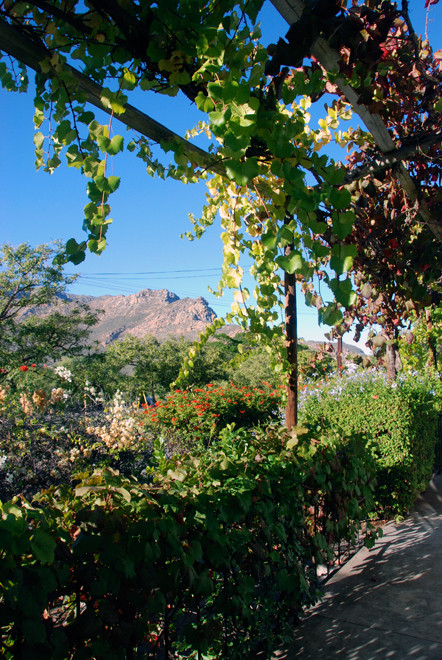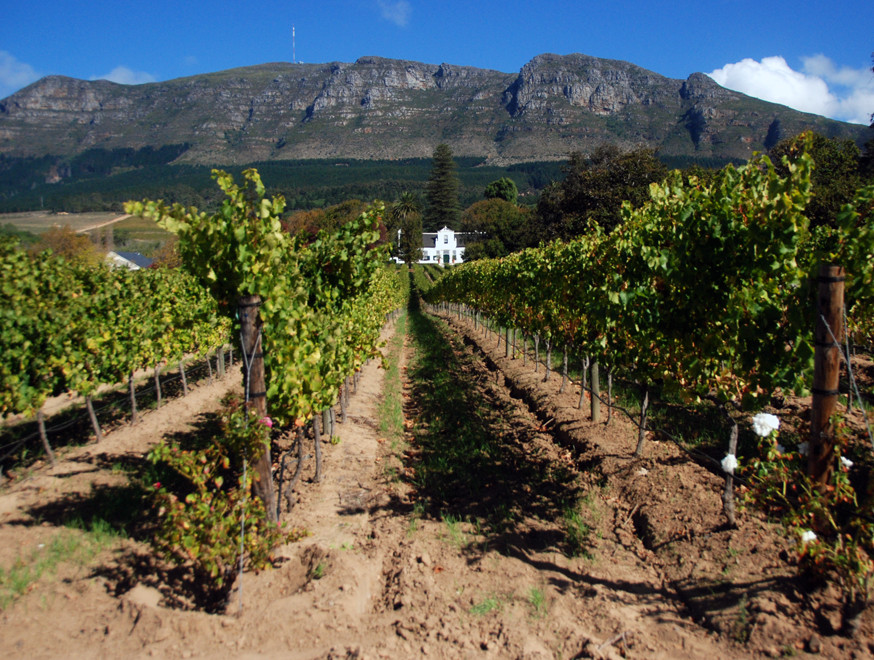The Beauty II

To the poor emigre coming from the cramped, damp, cold, dark lands of Holland and Britain, or escaping persecution after the revocation of the Edict of Nantes and the horror of the massacre of protestants in Paris and the Vendee, the Cape and its endless lands hidden behind countless protective mountain walls must have made hearts beat with land-fever.
Imagine the man who could never have dreamed of owning a handkerchief of land in feudal and mercantile Europe suddenly seeing the possibility of owning hundreds of acres? Even I, conscious of the absolute ownership of British land, a club that can never be joined save by birth-chance, felt a stirring in my soul for a house by a river, backed up against the mountain at Riviersonderend. I too had that homesteader's eye for sweet land and water, for just enough to keep body and soul together. How after all the privations and bitter silences held in an oaken heart, how much the sight of so much land and possibility could also become choked with greed and unquenchable avarice in this new land peopled, 'thankfully', by the expendable 'heathen.'
At the end of JM Coetzee's, In the Heart of the Country, the old white woman, Magda, who has endured the lonliness of the Karoo's back-country, who has thrown off her oppressive father, and who has glimpsed the hate and insecurity that underlies her black farm hand's relationship with her says,
Have I ever explained or even understood what I have been doing here in a district outside the law, where the bar against incest is almost down, where we pass our days in savage torpor...What have I been doing on this barbarous frontier? ...There are poems, I am sure about the heart that aches for Verlore Vlake [the lost plains], about the melancholy of the sunset over the koppies [exposed rock/tors], the sheep beginning to huddle in the first evening chill, the faraway boom of the windmill, the first chirrup of the first cricket, the last twitterings of the birds in the thorn-trees, the stones of the farmhouse wall still holding the sun's warmth, the kitchen lamp glowing steadily. There are poems I could write myself. It takes generations of life in the cities to drive nostalgia for country ways from the heart. I will never live it down, nor do I want to. I am corrupted to the bone with the beauty of this forsaken world.' pp150-1
In South Arica, in contrast with the USA, the emigre frontier was slow moving and fragmented. There was no pulse of fresh waves of immigration to keep it moving westward, as in the States, there was not a further shore to reach or communities and train lines to link up to make the country 'complete'. Instead immigration was often very limited and the pulse of northward movement petered out in the lonely subsistence Afrikaner farms in semi-desert regions, held together by the strictures of the Dutch Reformed Church, the expulsion of and often extermination of the local indigenous population, hunting, farming and that 'savage torpor' that Coetzee captures so well.



